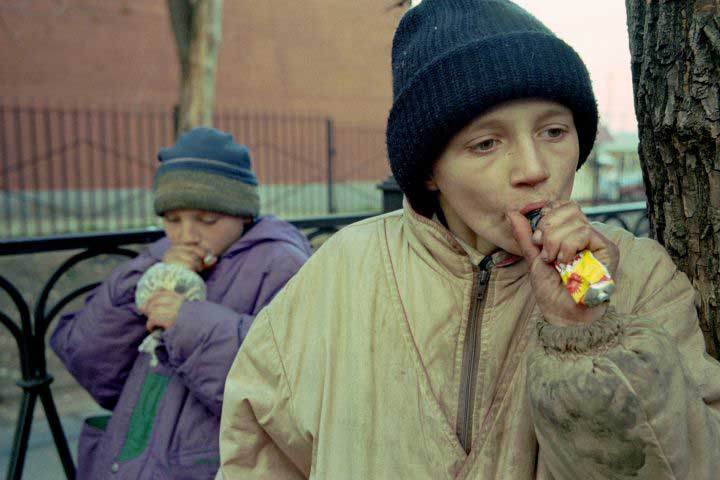Departments
Featured News
Featured Videos
Building Hope
 Geographically the largest country on earth, and spanning two continents, Russia is marked by a rugged terrain that has been both a blessing and curse to economic and cultural development. Dozens of ethnic groups with their own dialects, traditions, and perspectives have added a unique sense of diversity, but they also prevent a feeling of national cohesion. The sparse landscape has prevented both Napoleon and Alexander the Great from completely subduing the country, yet it also hinders current growth into new sectors of business. With the memories of Communist rule still fresh and the scars of oppression still healing, Russians continue to search for a future amidst the lingering shadows of the Soviet Union.
Geographically the largest country on earth, and spanning two continents, Russia is marked by a rugged terrain that has been both a blessing and curse to economic and cultural development. Dozens of ethnic groups with their own dialects, traditions, and perspectives have added a unique sense of diversity, but they also prevent a feeling of national cohesion. The sparse landscape has prevented both Napoleon and Alexander the Great from completely subduing the country, yet it also hinders current growth into new sectors of business. With the memories of Communist rule still fresh and the scars of oppression still healing, Russians continue to search for a future amidst the lingering shadows of the Soviet Union.
 For the past fifty years, Russia has failed to show evidence of fighting the trafficking of men, women, and children for forced labor, prostitution, and begging. Russian women have reported being trafficked to many regions, including the Middle East, Northeast Asia, and Europe. Organized crime is estimated to control seventy percent of all Russian banks and influences every branch of industry. Law enforcement is powerless to control the corruption, and as narcotic and opiate use continues to rise, HIV/AIDS is being transferred through shared needles. Russia has the highest and fastest growing rate of HIV/AIDS cases in Europe, and reports more abortions per year than births. Russia also has Europe's lowest birth rate, with the population dropping by 500,000 people each year. All attempts at reversing the trend have thus far failed. Today, there are an estimated 800,000 orphans in Russia, with an estimated 1 million street children who are used as beggars, prostitutes, and drug runners.
For the past fifty years, Russia has failed to show evidence of fighting the trafficking of men, women, and children for forced labor, prostitution, and begging. Russian women have reported being trafficked to many regions, including the Middle East, Northeast Asia, and Europe. Organized crime is estimated to control seventy percent of all Russian banks and influences every branch of industry. Law enforcement is powerless to control the corruption, and as narcotic and opiate use continues to rise, HIV/AIDS is being transferred through shared needles. Russia has the highest and fastest growing rate of HIV/AIDS cases in Europe, and reports more abortions per year than births. Russia also has Europe's lowest birth rate, with the population dropping by 500,000 people each year. All attempts at reversing the trend have thus far failed. Today, there are an estimated 800,000 orphans in Russia, with an estimated 1 million street children who are used as beggars, prostitutes, and drug runners.

Since the fall of the Iron Curtain, attendance has doubled in the Church of Russia, one of the most severely and continuously persecuted churches in recent history. Census results show the number of those who identify themselves as atheists or non-religious have been cut in half since 1991. The former Communist regime destroyed numerous churches and martyred over 200,000 Christian leaders between 1920 and 1990. Many local churches are still in the process of rebuilding. Politically and culturally, it is very difficult for evangelical Christians to obtain spaces to meet and worship. Establishing a dedicated building for the community and church programs is crucial for the future of the gospel.

Alexey and Tonia Pankov, are part of this rebuilding in the city of Gorno-Altaisk. They have been in this region since March 2008 and are primarily focused on developing nationals throughout the Republic of Altai; helping them become the next generation of leaders in their communities. They work closely with the Russian Assemblies of God, as Emmanuel Church in Moscow is considered one of their 'homes' and has played a vital role in their journey to the mission field.

Their passions include helping people grow and mature in their spiritual walk, pouring into the lives of youth and students, and using English teaching as a tool for evangelism.
The Pankovs have been building a church/community centre and are planning to complete the project in Spring 2017. The new building, once completed will host programs, particularly for children during school holidays, so that families can receive tangible and practical assistance.
 Please give to "Church Planting In Sibera" so Alexey and Tonia will be able to instill hope and provide encouragement to a nation ravaged by depression, suffering, and anguish. In this bleakness, God's light shall shine brightest.
Please give to "Church Planting In Sibera" so Alexey and Tonia will be able to instill hope and provide encouragement to a nation ravaged by depression, suffering, and anguish. In this bleakness, God's light shall shine brightest.